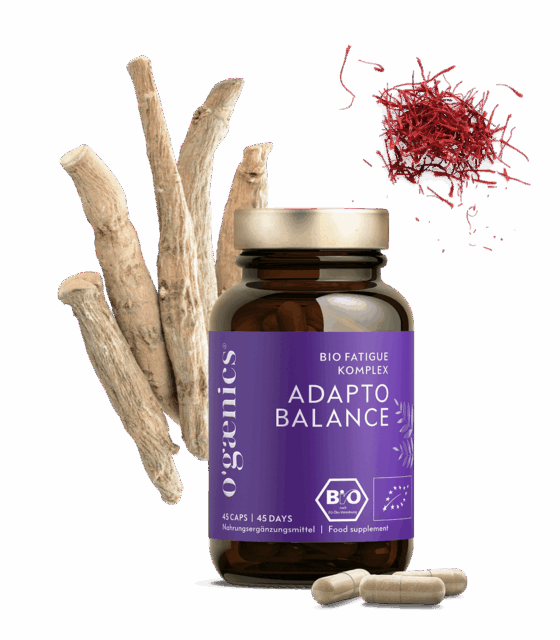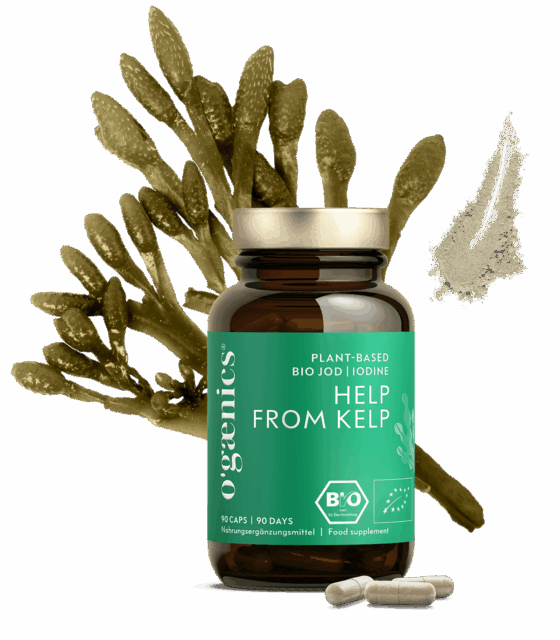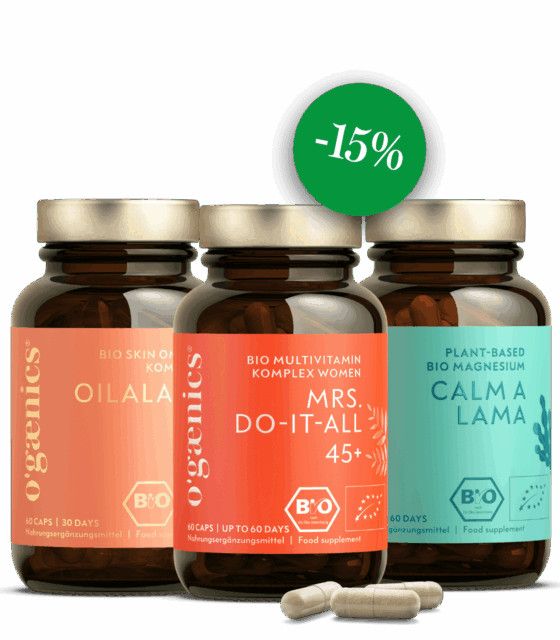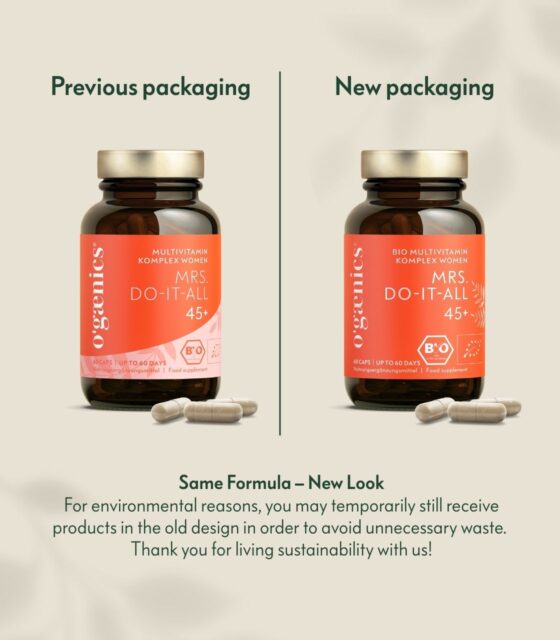Suddenly you feel hot and your heart is racing? Find out what’s behind your hot flushes.
Hot flushes are a common symptom experienced by many people, especially women during the menopause. These sudden, intense bouts of heat can be uncomfortable and sometimes even distressing.
But what is actually behind these hot flushes and are there ways to alleviate or even prevent them? In this article, we get to the bottom of the possible causes of hot flushes. You’ll also find out which nutritional supplements can help you prevent sweating attacks.
Hot flushes during the menopause
Hot flushes are a typical symptom of the menopause, especially during the perimenopause, a phase characterized by a sharp drop in oestrogen levels. Many women do not immediately recognize that they are entering the menopause when the first symptoms appear. In fact, perimenopause can begin as early as the early 40s, often before any changes in the menstrual cycle are noticeable.
The falling estrogen level during the perimenopause causes the temperature control center in the hypothalamus, an area of your brain, to react more sensitively to the slightest changes in temperature. This increases the frequency and intensity of hot flushes.
In addition to hormone replacement therapy, dietary supplements with phytoestrogens can also be helpful in alleviating the annoying sweating attacks during the menopause. Phytoestrogens, such as polyphenols, lignans, isoflavones, glucosinolates and indoles, are plant substances that have a similar effect to the body’s own oestrogen. They are found in many herbal supplements, such as Mrs Do-It-All Organic Multivitamin 45+, and can help to alleviate the symptoms of menopause. In addition, certain omega-6 fatty acids have been shown to reduce hot flushes (e.g. in Oilalala Skin Omega Complex)
Possible other causes of hot flushes
In addition to hormonal changes during the menopause, there are many other possible causes of hot flushes that you should check. Here are some of the most common causes.
Stress and psychological strain
When you are stressed or anxious, your body releases stress hormones such as adrenaline and cortisol, which can stimulate the nervous system and increase body temperature. This can lead to hot flushes, which often occur suddenly and unexpectedly under stress.
Supplements such as magnesium and B vitamins can be helpful in coping with stress, as they support and calm the nervous system. Adaptogens such as ashwagandha can also help to increase stress resistance and reduce hot flushes.
You can find out exactly how ashwagandha works and why it can be a real helper, especially for women in hormonal transition phases, in the article Ashwagandha benefits for women: Naturally effective.
Hypertension
High blood pressure is an often overlooked cause of hot flushes. When blood pressure rises, it can cause the heart to work harder and pump more blood through the blood vessels. This can increase the feeling of heat in the body and lead to hot flushes.
To support healthy blood pressure, supplements such as magnesium and foods containing potassium such as nuts or bananas can be helpful. These nutrients help to relax the blood vessels and can help to keep blood pressure at a healthy level. In addition, omega-3 fatty acids can have an anti-inflammatory effect and contribute to heart health.
Thyroid problems
An overactive thyroid gland (hyperthyroidism) can also cause hot flushes. The thyroid gland produces hormones that regulate metabolism. If the thyroid gland is overactive, this can lead to an increased metabolic rate and an increased body temperature, which can trigger hot flushes.
To support the thyroid gland, the intake of iodine and selenium(e.g. in all Ogaenics organic multivitamins) can be considered, as these nutrients are necessary for the production of thyroid hormones. However, make sure to take these supplements only after consulting a doctor.
Medication
Some medications can cause hot flushes as a side effect. These include certain antidepressants, hormone preparations and antihypertensives. If you suspect that your hot flushes are caused by a medication, you should discuss this with your doctor.
Lifestyle factors
Certain lifestyle factors can increase the risk of hot flushes. These include the consumption of alcohol and caffeine, smoking, eating spicy foods and wearing tight clothing. These factors can increase body temperature and trigger hot flushes.
Adjusting your lifestyle can go a long way towards reducing hot flushes. Avoid excessive alcohol and caffeine consumption, don’t smoke and make sure you eat a balanced diet. Wear loose, breathable clothing to avoid overheating.
Overweight
Being overweight can also be a risk factor for hot flushes. Fatty tissue has an insulating effect and can increase body temperature. In addition, obesity is often associated with high blood pressure and impaired hormone regulation, which can promote the occurrence of hot flushes.
Maintaining or achieving a healthy body weight can help to reduce hot flushes. In addition to regular exercise and a balanced blood sugar level, nutritional supplements can be helpful to support the metabolism and regulate body weight.
Conclusion: Understanding and preventing hot flushes
Hot flushes are particularly common during the menopause, but can also be influenced by other factors such as stress, high blood pressure, thyroid problems, medication, obesity, certain foods and lifestyle habits. In many cases, nutritional supplements play a supporting role by helping to stabilize the body and compensate for deficiencies. However, it is important that you use these supplements consciously in order to achieve the best possible results.
Store the Story
-
Adapto Balance
6-week supply for psyche, nerves and energy with Safr'inside™, organic KSM-66® Ashwagandha and an organic vitamin B complex49,90 €1.386,11 € / kg











 No products in the cart.
No products in the cart.